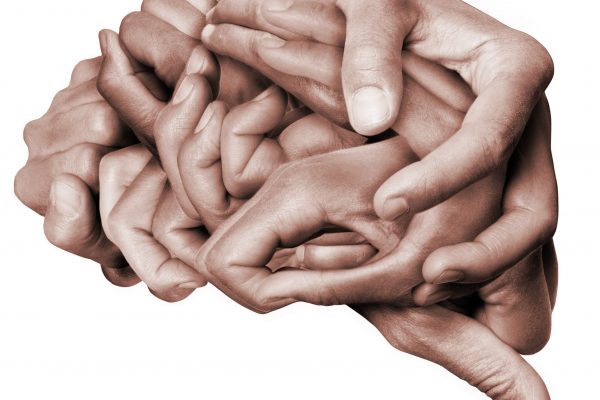Erika Brodnock is the creator of digital resources covering emotional and social learning, digital safety, and digital parenting. She is also Sky News’ children’s wellbeing expert and her corporate seminars cover most areas of family life.
Erika is passionate about making sure that every child has an equal opportunity for success and is founder and CEO at Karisma Kidz and Kami. The brand is loved by parents and children, is preloaded to around 2 million devices, and championed by the Sunday Times as the next big thing to shake up the children’s entertainment industry.
Sistr caught up with Erika to talk about her businesses and tips for parents during lockdown.
What is Karisma Kidz?
Karisma Kidz is a multi-award winning brand that delivers emotional learning to young children through play and provides feedback to the whole family. The mobile app gamifies established methods for building emotional literacy and links seamlessly with toys, activities, and rewards in the real world, teaching children that real superheroes interact positively with others. My passion is helping kids become more illiterate and providing the tools to enable them to do so and parents to support this.
How does it Operate from a Business Point of View?
Karisma Kidz builds relationships with companies who want to put children’s wellbeing at the centre of their ethos and strategy. Tablets are pre-loaded with apps and tools and there is a simple version on the app store. Companies pay a fee for every tablet purchased with their product on. This enables us to sell at a lower price and to make them available free of charge in cases to parents most in need as companies carry a large share of the costs.
Define what you mean as Emotional Intelligence in children?
I’ve written some stories about emotional intelligence where I refer to it as the emoji moment. In short it’s when emotions take over and the child becomes a different person and emotional intelligence is trying to get the child back to the place where you recognise them and the tools they use to get back to that place. Our tools help children to understand how they’re feeling and what they can do to shift to a different way of feeling, a different ‘type’ of feeling as well as understanding the different emotions that are at play. We use traditional games to identify emotions. Games are used such as snap but rather than use numbers the cards have angry and happy faces. Children recognise different feelings and the different ‘faces’ that they can look like. Once they grasp how they’re feeling and why – perhaps they’re cross because a toy has been taken away without notice – the parent can also adapt their own behaviour to help the child ie give 5 mins notice to the child rather than act on instinct. My main advice is always take a deep breath which is often hard with children – I tell them to use an imaginary remote control – press stop on the remote to stop the anger – make them laugh which then removes anger. It’s all about hints and tips to enable them to return to their happy selves.
What is your other business Kami?
Having helped the children with emotional intelligence I wanted to set up the tools and support to parents to develop emotional intelligence so I set up Kami. Myself and my partners recognised that it needs both sides – children and parents – to be addressed. Kami targets parents in the first 5 years pre and post birth, it addresses the whole adjustment process. We have a pool of sleep experts, doulas, lactation consultants and many others on hand who can provide support along the journey as a new parent. The ethos around this is that parents can model better behaviour if they feel supported.
How Is Lockdown Affecting Your businesses?
The business has had to pivot quickly. I have been inundated with people wanting advice for life in general and business situations. I have also set up a Facebook group for people home schooling. The pressure to manage children and work has been building and I want to support as much as I can. In this situation both personally as parents and in business, flexibility is key.
What is your Advice to Parents Homeschooling?
Mix school work up with other activities. If your children are under 8 I’d recommend no more than a 20 minute concentration ‘session’ and then break. Break the day down into smaller increments both for your sanity and the children’s concentration levels. If work is your priority then check in for 20 minutes with a game or a school led exercise and then let them ‘play’. I’m a firm believer in boredom – I think it’s a key skill that children need to manage. Homeschool is about remembering reading, writing and arithmetic but more importantly about creativity. Introduce games into learning – use a pack of cards to count, play snap, help cook and measure out ingredients, what could you replace in the recipe to make a different taste. One of my favourite activities is to create hands with paints and cardboard, cut out the shapes having drawn round your hands, colour them in and make a family lockdown montage – its an activity that will bond you as a family, you’ll be teaching and loving and having fun.
Technology – is there too much within the homeschooling from schools? Is it lazy teaching?
Endless links and apps to log into can lead to feeling useless as a parent. If you can’t access the link, spend more than a few seconds accessing it then children, especially under 11, will already have lost interest. We recommend a ‘5-a-day’ play activity – inline with fruit and veg – but activities! I’d generally say use the tech for the teaching, not necessarily for the fun activity side of the day. But heck if you need that movie length to do some work then during this period of time, you use whatever tools will entertain your kids.
What’s your advice on Routine vs No routine?
I’d recommend a bit of structure but with flexibility. With no routine, children will wake up not knowing what they’re going to get that day and that can lead to confusion and a huge lack of energy. A small amount of structure creates security then if you need to, moving away from the structure can be seen as a treat and fun. Don’t mirror school with a full timetable (unless it works for you and your child is embracing it!) but some semblance of routine gives purpose. Too much rigidity can create anxious kids and anxious parents and gives off a bubble of perfectionism which isn’t great mentally.
What’s your advice for Businesses?
I’d say you need to flex now day to day. Listen to advice, gather info, embrace the chaos, go leftfield and don’t be afraid of changing direction. Be responsive – what do people need? How can I best serve the people approaching me for help (whether that’s children or your audience as a business or parents/friends), how can you respond to their needs? If you don’t have an entrepreneurial streak there is no shame in saying I can only handle my world at the moment. Take time to fill the jug of life, don’t panic and actually build in me time and embrace the pace. I’d always say have a selfish moment – it’ll mean you can best serve them and best serve you.
What’s your Daily ritual to keep you sane?
Breathing! I’m a fan of a US Company called Institute of Heart Math. They calculate that if you take deep breaths in for the count of 6 and out for the count of 6 – imagine the breathe going through your heart – then add in what you’re grateful for – this will get you in the zone mentally, it’ll get you into coherence. I do it in the morning and it gives me the clarity I need for the day. Breathing allows your brain to equate a breath as a checkpoint to balance emotions.
Diversity – what work are you doing within Diversity?
I and 6 other partners in the latter part of last year created Extend Ventures. Its purpose it to look at economic well being for diverse and BAME communities – females and other sexual orientations. It has a look at how the inequality that exists in society means that people from those backgrounds are more susceptible to disharmony. There’s a line of thinking that COVID deaths are linked to the working class. Our research looks at how wealth is being structured in the country on the whole. Why do disproportionate amounts go to middle class, middle aged males who use entrepreneurship as means for creating economic wellbeing so are the least ‘wanting’ group who don’t need to go out to the front line. We are looking at ways to trigger change. No one should ever be in a position where you’re ‘damned if you do damned if you don’t’.
Do you have any Advice for People needing support at this time?
As ever I would say reach out to me and I will try and help in whatever way I can. I have a huge network of contacts who can be utilised to provide help in any areas necessary.
Thank you Erika for your incredibly insightful chat…we’re in awe of your commitment and knowledge and dedication to making a difference. If anyone would like to reach out to Erika directly please do through Linkedin or Twitter.

















